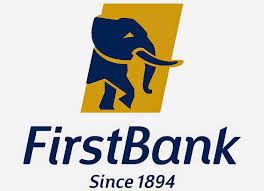In a shocking turn of events, First Bank Nigeria, one of the country’s leading financial institutions, has been rocked by a massive fraud scandal. The bank has sacked over 100 employees, including full-time and contract staff, in the aftermath of a ₦40 billion fraud that went undetected for two years.

The fraud was orchestrated by Tijani Muiz Adeyinka, a manager on the bank’s operations team, who allegedly used his authorization powers to approve chargebacks to accounts he controlled. The incident was first reported by TechCabal, a reputable technology news platform, in May 2024.
According to sources familiar with the matter, the bank’s management team believed that the scale and timeline of the fraud made it impossible for it to have been executed without the knowledge of Adeyinka’s superiors. As a result, the bank has taken drastic action, not only sacking the employees but also freezing their personal accounts, except for their First Bank accounts.
“The CEO said there will be zero tolerance for supervisory negligence,” said one First Bank employee who requested anonymity.
The fallout from the scandal has extended beyond the sacked employees. First Bank’s CEO at the time, Dr. Adesola Adeduntan, who had led the bank for nine years, abruptly resigned in April 2024, just a month after the fraud was uncovered. His resignation was initially blocked by the Central Bank of Nigeria, but he was eventually allowed to step down, with the bank citing his desire to “pursue other interests.”
The fraud has also had legal implications. Several employees were questioned by the Nigerian Police Force (NPF) and detained at the Lion’s Building for at least six hours. These employees were required to post bail before being released, and restrictions have been placed on all their personal accounts except their First Bank accounts.
The incident has raised concerns about the internal controls and oversight mechanisms within First Bank, as well as the broader banking sector in Nigeria. Experts have called for a thorough investigation into the matter and the implementation of stronger measures to prevent such large-scale fraud from occurring in the future.
“This is a wake-up call for the banking industry,” said a financial analyst who requested anonymity. “Banks need to strengthen their internal controls, improve their monitoring systems, and ensure that there are robust checks and balances in place to prevent such incidents from happening again.”
The scandal has also brought into question the role of the Central Bank of Nigeria in regulating the banking sector. The central bank’s decision to initially block the replacement of the First Bank CEO has raised eyebrows, with some questioning whether the move was motivated by political or other considerations.
As the fallout from the scandal continues to unfold, First Bank and the broader banking industry in Nigeria will need to work hard to regain the trust of customers and the public. The incident serves as a stark reminder of the need for vigilance and strong corporate governance in the financial sector, which plays a crucial role in the country’s economic development.



